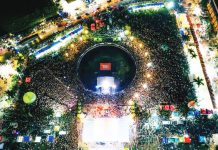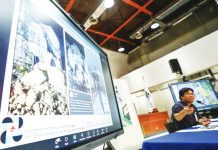DID YOU know that it was World Wildlife Day two days ago, March 3? The yearly observance was a call for people to take part in biodiversity conservation efforts. Filipinos must get involved in efforts towards biodiversity conservation.
This year, this call has taken a new dimension due to the COVID-19 outbreak. The possible connection between unsustainable use of wildlife for food and the COVID-19 should not be ignored. Illegal smuggling, trafficking and poaching of wild animals are still operational and remain rampant across many Asian countries and across the globe. Experts say there is a high likelihood that the COVID-19 came from the illegal wildlife trade, as people are eating various kinds of wildlife.
This ongoing public health crisis is only one of many that will beset us if we continue to ignore the warnings of scientists. If we continue on the path to a warming planet as we seem to be doing, we could use this crisis in three ways: as a test of our current coping mechanisms, as a drill for future crises, and as a wake-up call to the connection of this public health crisis to the destruction of biodiversity and ecosystems on which we all depend.
We have ignored the laws of nature to our peril. It is time to heed her warnings: do not eat what is not intended for human consumption, do not trade what should not be traded. We must relearn to coexist with animals, and their habitats.
We have many laws in place already but we need to treat them as measures for survival rather than mere obstacles to the relentless pursuit of an economic future that will be mired in new dangers. We will not survive this and other coming changes unless we value the intricate interrelationships of all life on earth, unless we see that the rules of the game have changed and we need a fundamental shift in the way we live. From what we eat, how we travel, how we manage our discards, to how we do business and treat each other, we have to forge new ways.
The first step towards building a sustainable community, one that respects biodiversity, is to correct one of the biggest misconceptions about the environment — that natural resources are infinite. We all need to stop craving for and taking more than what we need.





